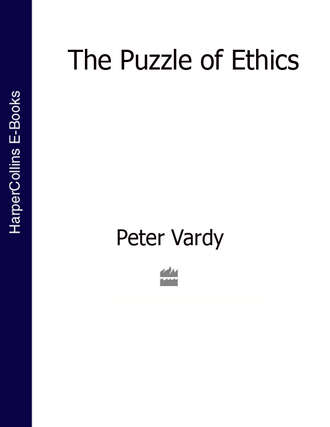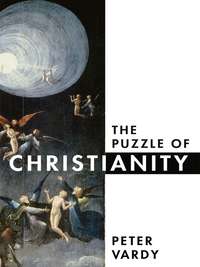
Полная версия
The Puzzle of Ethics
John Stuart Mill (1806–73)
John Stuart Mill understood the problems only too well. Mill wanted, therefore, to define pleasure a little more carefully, and this involved shifting the emphasis from quantity to quality. Mill distinguished between the higher pleasures, associated with the mind, and the lower pleasures, associated with the body. Clearly the two are linked. It is difficult to experience the pleasures of intellectual pursuits whilst remaining perpetually cold and hungry. But after the minimum requirements of the body have been satisfied, that is, after the lower pleasures have been attended to, then the real moral business involves pursuit of the higher goods: mental, cultural and spiritual. Arguably, on this view, the person who eats and drinks in moderation in order to spend more time designing elegant, ecologically-sound and inexpensive clothing is morally better than the person who is anxious to toss off quick, profit-making designs in order that he may then pursue the known bodily pleasures of sex, food and drink in large quantities. The higher pleasures of the mind are to be preferred to the lower pleasures of the body. As Mill states: ‘It is better to be a human being dissatisfied than a pig satisfied; better to be Socrates dissatisfied than a fool satisfied.’ (J. S. Mill, Utilitarianism, ed. by M. Warnock, 1962, Collins, p. 260).
Some criticisms:
There are still a number of problems associated with this view. Firstly, as Henry Sidgwick (1838–1900) pointed out, how in practice do we distinguish properly between higher and lower pleasures, and how do we distinguish one higher pleasure from another? If all cultural and spiritual activities provide the same sum of pleasure and happiness, presumably it does not matter which one we choose to undertake at any time. If reading Shakespeare, playing Bach, and painting watercolours all produce the same degree of pleasure, then there is nothing to choose between them. Sidgwick understood that life is just a shade more complex than that, for every activity and pursuit, whether physical or intellectual, is both quantitatively and qualitatively different. An hour’s reading of Shakespeare is just not equivalent to an hour’s playing of Bach, and so on. Moreover, where do physically and intellectually demanding pursuits such as sailing, play-acting and advanced kung-fu fit into the higher/lower pleasures distinction? Is the refined eating of a carefully planned foreign dish a higher pleasure, and the eating of a takeaway beef-burger a lower pleasure? The difficulties are endless.
Конец ознакомительного фрагмента.
Текст предоставлен ООО «ЛитРес».
Прочитайте эту книгу целиком, купив полную легальную версию на ЛитРес.
Безопасно оплатить книгу можно банковской картой Visa, MasterCard, Maestro, со счета мобильного телефона, с платежного терминала, в салоне МТС или Связной, через PayPal, WebMoney, Яндекс.Деньги, QIWI Кошелек, бонусными картами или другим удобным Вам способом.



